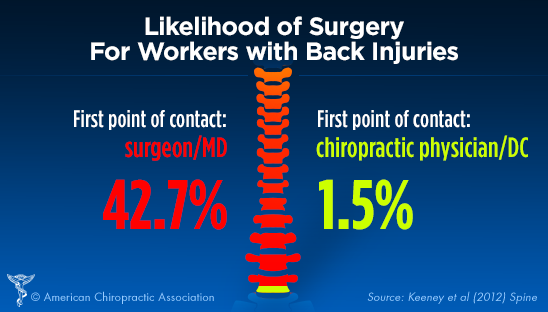Do Acupuncture Points Truly Exist? An Examination Right Into Meridian Concept
Do Acupuncture Points Truly Exist? An Examination Right Into Meridian Concept
Blog Article
family care chiropractic -Thomasen Martens
You might be wondering about the existence of acupuncture factors and their role in traditional Chinese medicine. These factors, linked to meridian theory, suggest an one-of-a-kind system of energy flow in the body. While historical texts lay a foundation, modern science uses new insights right into their importance. Are these old principles compatible with contemporary understanding? The solution may shock you as we discover the crossway of tradition and contemporary research study.
The Historic Origins of Acupuncture and Meridian Theory
Acupuncture, with its elaborate network of meridians, has deep historical roots that trace back hundreds of years in ancient China.
You'll discover that early texts, like the Huangdi Neijing, laid the foundation for recognizing how energy moves through the body. These works presented the principle of Qi, the vital force that flows along the meridians.
As you explore this ancient practice, you'll uncover just how professionals identified specific points to influence health and wellness and equilibrium.
Over centuries, acupuncture developed, integrating different strategies and approaches, yet it stayed deeply linked to its origins.
Scientific Perspectives on Acupuncture Details
While many individuals still view acupuncture as an old art rooted in custom, clinical study has increasingly clarified the physical mechanisms behind acupuncture factors.
Researches suggest these points might represent locations abundant in nerve endings, blood vessels, and connective cells. When needles stimulate these points, they can trigger biochemical actions, such as the release of endorphins and other natural chemicals, which help alleviate discomfort and advertise healing.
Imaging techniques like functional MRI have actually revealed changes in mind activity connected with acupuncture, sustaining its effectiveness.
While apprehension remains, growing proof points to a possible organic basis for acupuncture, inviting further expedition into just how these old techniques can align with contemporary scientific understanding.
Incorporating Ancient Practices With Modern Medication
As even more doctor acknowledge the value of holistic strategies, integrating old techniques like acupuncture with modern medicine is becoming increasingly pertinent.
You might locate that combining these approaches can boost client care, providing a more comprehensive therapy strategy. By recognizing the benefits of acupuncture-- such as pain relief and stress and anxiety reduction-- you're not only attending to physical symptoms but also promoting general well-being.
This combination allows you to tailor treatments to private requirements, bridging the gap in between standard wisdom and contemporary medical methods. https://adjustment-chiropractic39516.59bloggers.com/36027917/introducing-migraine-relief-the-significance-of-chiropractic-treatment-in-controlling-headaches with acupuncturists can also increase your understanding and provide your people with a bigger series of choices.
Eventually, welcoming this fusion can result in improved health outcomes and an extra balanced technique to recovery.
Verdict
In conclusion, acupuncture factors might not fit nicely into modern medical standards, but their historical importance and arising scientific support suggest they hold value. By checking out the intersection of old techniques and contemporary research study, you can appreciate how these factors could affect health. Whether you're a skeptic or a believer, understanding meridian theory unlocks to brand-new point of views on health and healing, inviting you to take into consideration the possible benefits of acupuncture in your own life.
